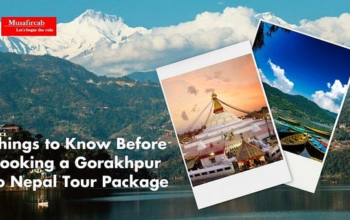Wildlife photography is a thrilling art form that demands not only technical skill but also patience, creativity, and respect for nature. While many photographers learn through trial and error, attending a wildlife photography workshop with expert mentorship can dramatically accelerate the learning curve and enrich the entire experience.
Expert mentors provide invaluable guidance, technical insights, and personal encouragement that help photographers grow both creatively and professionally. Let’s explore why expert mentorship is a crucial component of wildlife photography workshops and how it transforms photographers’ journeys.
Bridging the Gap Between Theory and Practice
One of the biggest challenges for wildlife photographers is applying theoretical knowledge to unpredictable real-world conditions. Cameras don’t always cooperate, lighting can change abruptly, and wildlife is inherently spontaneous. Having an expert mentor by your side during a workshop bridges this gap. Mentors guide you through hands-on techniques such as focusing on moving animals, mastering exposure in challenging light, and composing shots that tell compelling stories.
This direct, practical teaching helps you grasp concepts much faster than learning alone. Mistakes become learning opportunities, and immediate feedback ensures you don’t repeat the same errors. Over time, this accelerates skill development and builds your confidence behind the lens.
Learning from Years of Experience
Expert mentors bring years — sometimes decades — of wildlife photography experience to the table. They have faced countless challenges, from tracking elusive animals to adapting gear in harsh environments. Their insights about animal behavior, seasonal patterns, and location-specific tips are often not found in books or online tutorials.
For example, a mentor might teach you how to anticipate a predator’s movements or the best time to photograph birds at a clay lick. These nuanced lessons are priceless, saving you time and enhancing your chances of capturing spectacular images. Mentors can also share stories that deepen your appreciation for wildlife and the ecosystems you photograph, fostering a stronger connection with your subject.
Personalized Feedback and Growth
One of the most valuable aspects of expert mentorship is the personalized feedback you receive. Unlike generic advice, mentors tailor their guidance to your skill level, style, and goals. They can identify subtle improvements in your technique, composition, and timing, and suggest ways to elevate your work.
This individualized approach means you’re not stuck with a one-size-fits-all solution. Whether you’re a beginner needing foundational skills or an advanced photographer refining your artistic voice, expert mentors adapt their teaching to meet you where you are. The resulting growth is often faster and more meaningful.
Encouraging Ethical and Responsible Photography
Wildlife photography carries a responsibility to minimize disturbance to animals and their habitats. Expert mentors emphasize ethical practices, teaching participants how to respect wildlife while still achieving great shots. This includes maintaining safe distances, avoiding nesting sites, and following local guidelines.
Learning these principles in the field is essential. Mentors model respectful behavior and encourage photographers to prioritize conservation over a perfect picture. This ethical grounding ensures that your passion for photography supports, rather than harms, the natural world.
Building a Supportive Community
Workshops with expert mentorship often create close-knit groups of like-minded photographers. Mentors foster a positive environment where participants share ideas, challenges, and successes. This community aspect provides ongoing motivation and opportunities for networking beyond the workshop.
Many photographers build lasting friendships and professional connections through these experiences. Mentors themselves often remain accessible for advice and encouragement, enriching your photography journey long after the workshop ends.
Inspiration and Creative Confidence
Expert mentors don’t just teach technical skills — they inspire. Their passion for wildlife and photography is contagious, sparking creativity and encouraging you to experiment and take risks. This boost in creative confidence can lead to breakthroughs in your style and vision.
Mentors often introduce new perspectives, techniques, or subject matter that you might not have explored on your own. This expanded horizon broadens your artistic palette and deepens your enjoyment of photography as a form of storytelling.
Conclusion
The role of expert mentorship in wildlife photography workshops is pivotal. From translating theory into practice and sharing hard-earned experience to providing personalized feedback and ethical guidance, mentors elevate every aspect of the learning process. Their support nurtures technical skill, creative growth, and responsible photography habits.
For anyone serious about improving their wildlife photography, attending a workshop with expert mentorship is a powerful investment. It not only accelerates your development but also connects you to a vibrant community and inspires your lifelong journey behind the lens.




